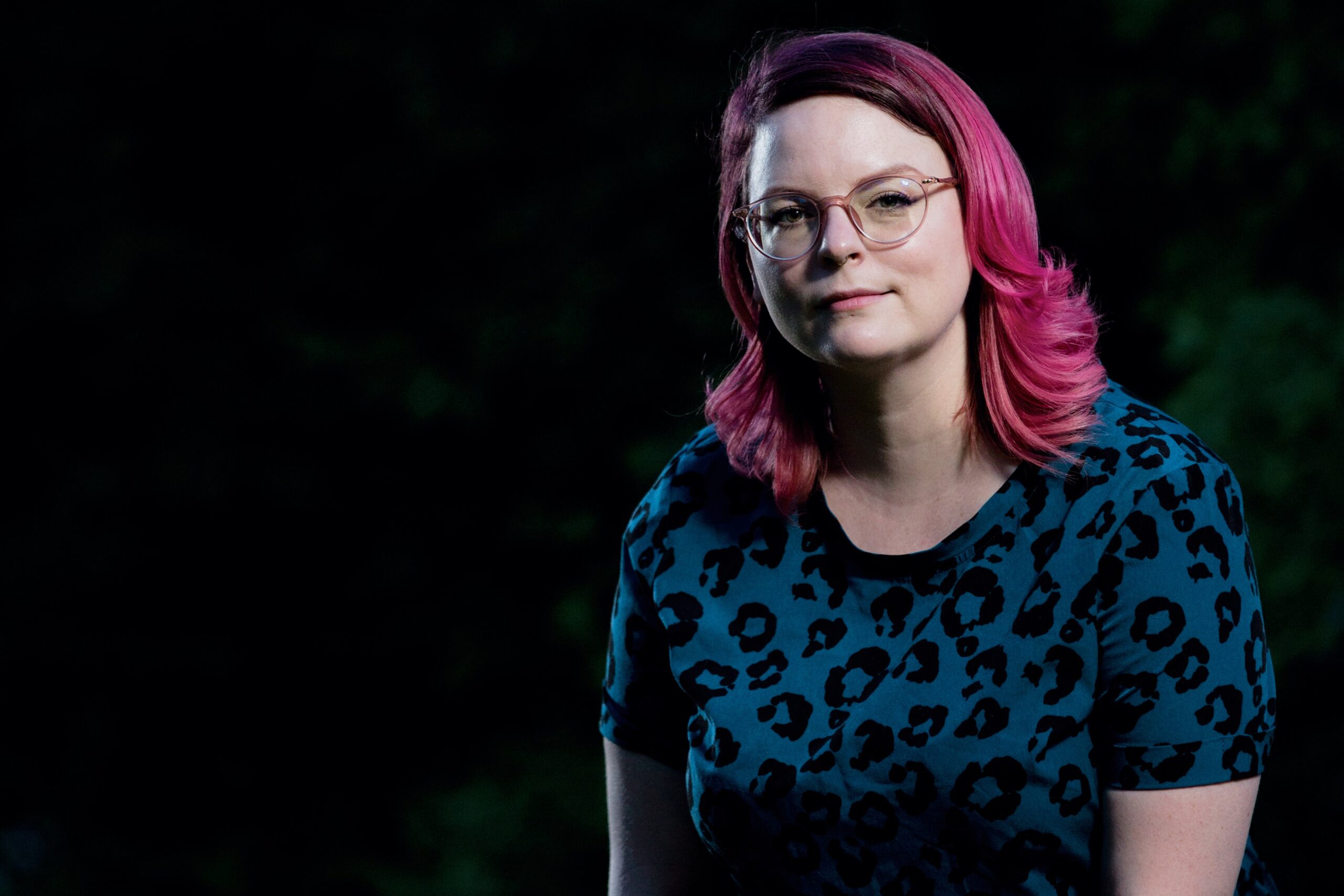Brianne Selman is an academic librarian and advocate for access to information in Winnipeg. She’s a member of Millennium for All, a group that formed last year after Millennium Library, the main public branch in downtown Winnipeg, introduced airport-style security. Selman and other group members worry the barriers will restrict access to the library, especially for marginalized members of the community who need it most. She spoke with Isaac Würmann.
On libraries: We have this lovely rose-tinted view of libraries as these perfectly public places where only good things ever happen. But that’s just not true. Libraries are a reflection of society, and they’re also a reflection of political priorities.
You may unsubscribe from any of our newsletters at any time.
On Millennium for All: Friends reached out to me and said ‘we’re organizing a community event where we’re going to listen to different people in the community who should have been consulted before.’ There was a ton of effort that went into planning that and really making sure that the types of groups who should have been consulted — people who understand living without homes, people who understand substance use and harm reduction, and just general concerned library goers — were there for that consultation.
More on Broadview:
- ‘Nap bishop’ advocates for rest as a form of resistance
- StopGap’s Luke Anderson on the barriers within us
- Max Liboiron on running an anti-colonial, feminist lab
On intellectual freedom: When we’re talking about intellectual freedom, we never talk about it for library workers. Library workers in Winnipeg right now can’t say anything negative about the city budget, which is decimating their services, and they couldn’t say anything negative about the security screenings at the time it happened. If they’re trying to position themselves as great defenders of it when their own workers don’t have intellectual freedom, then it’s worse than talking out of both sides of their mouth.
On access to information: To me, when I think of what my job is as a librarian, intellectual freedom isn’t the thing that comes to mind first. It’s access to information. And sometimes access to information and intellectual freedom can be portrayed as the same thing, but they’re really not. Because access to information means that I have to be looking at it more deeply — Who can access this information? Is it everyone? Are people being excluded from this space?
On protest: So much of it goes against ‘library nice,’ and that’s the biggest struggle, even for myself. I have a history of activism and direct action, but bringing it into library spaces was intimidating. The idea of doing loud things in the library is still kind of scary.
This interview first appeared in Broadview’s October 2020 issue with the title “Brianne Selman.”
***
Isaac Würmann is a writer in Winnipeg.
I hope you found this Broadview article engaging. The magazine and its forerunners have been publishing continuously since 1829. We face a crisis today like no other in our 191-year history and we need your help. Would you consider a one-time gift to see us through this emergency?
We’re working hard to keep producing the print and digital versions of Broadview. We’ve adjusted our editorial plans to focus on coverage of the social, ethical and spiritual elements of the pandemic. But we can only deliver Broadview’s award-winning journalism if we can pay our bills. A single tax-receiptable gift right now is literally a lifeline.
Things will get better — we’ve overcome adversity before. But until then, we really need your help. No matter how large or small, I’m extremely grateful for your support.
Jocelyn Bell
Editor/Publisher















Shout it from the house tops: “The Winnipeg librarian prioritizes access to information over intellectual freedom”. And then some gobbledygook about disrupting traditional libraries.
This is the hyper-indvudualist language of Silicon Valley oddly married to nascent authoritarianism. And it’s offered in the language of justice.
Maybe it’s not the job of the librarian to do what is claimed. Maybe what’s described actually robs agency from the very people that are “targets” of of help. Maybe some humility would a good idea. And some knowledge of history and how oppression is often promoted using the language of justice.
The subhead is worth repeating: “The Winnipeg librarian prioritizes access to information over intellectual freedom”.